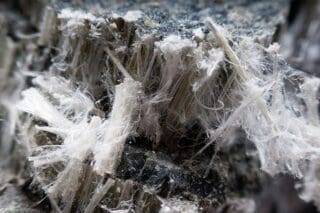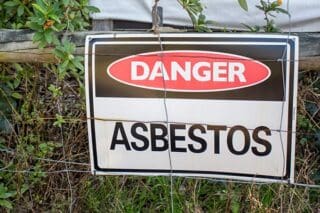
Some people confuse pleural mesothelioma and lung cancer because they occur in similar places. The same can be said of testicular cancer and testicular mesothelioma. These cancers develop in the same part of the body, but they affect different tissues.
Asbestos causes several types of cancer but is not known to cause testicular cancer. Testicular cancer develops within the testicle. It differs from testicular mesothelioma, which forms in the lining around the testicle. Asbestos does cause mesothelioma but has not been linked to testicular cancer.
What Research Shows About Asbestos and Testicular Cancer
Research has linked asbestos to testicular mesothelioma, which is not the same as testicular cancer.
Testicular mesothelioma is very rare. It accounts for less than 1% of all mesothelioma cases, roughly 30 total cases per year in the United States. In comparison, testicular cancer affects nearly 10,000 American men each year.
Asbestos has been definitively linked to:
- Laryngeal cancer
- Lung cancer
- Malignant mesothelioma
- Ovarian cancer
Testicular Mesothelioma vs. Testicular Cancer
Testicular mesothelioma and testicular cancer have some key differences. One area of contrast is where the two diseases start.
All types of mesothelioma start in the thin protective lining that surrounds certain organs. This tissue is called the mesothelium. The testes have a layer of this tissue known as the tunica vaginalis testis. Testicular mesothelioma starts in this lining.
Testicular cancer starts inside the testicle.
Despite the differences, these cancers do have some similarities, including symptoms.
Symptoms and Treatment for Cancers in the Testicles
Like other types of mesothelioma, testicular mesothelioma has symptoms common to other diseases. Testicular mesothelioma and testicular cancer share some symptoms. These include:
- A lump or mass in the scrotum
- Swelling of fluid build-up in the scrotum
However, both cancers have been found in some patients who reported no symptoms. Anyone who has symptoms of either testicular cancer or testicular mesothelioma should see a doctor. Early treatment may lead to better outcomes.
Doctors often treat testicular cancer and testicular mesothelioma with surgery. Testicular cancer may have other treatments, like chemotherapy and radiation. But some research suggests these treatments do not benefit testicular mesothelioma patients.
Treatment plans depend on many variables, like the type of cancer and a patient’s overall health. An oncologist can develop a treatment plan based on the individual patient.
Talk to Your Doctor
Asbestos may not cause testicular cancer, but that doesn’t make it any less scary. If you worry about either of these cancers, share your concerns with your physician. Be sure to mention any worrisome symptoms or history of asbestos exposure. This information can help the doctor order the right tests and find the true cause of your symptoms.




